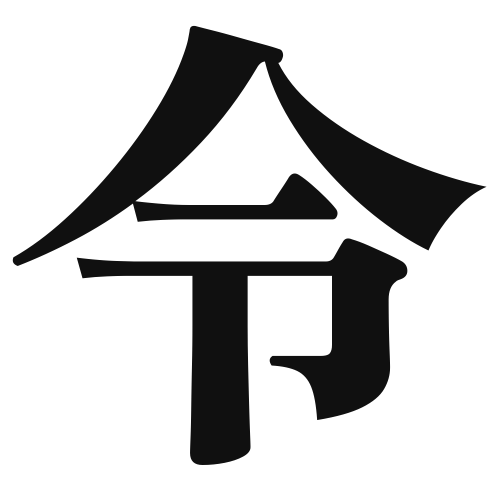1. Overview of Meaning
The kanji “令” (rei) primarily means “order” or “command.” It conveys the idea of giving instructions or directives, often in a formal or authoritative context.
2. Formation and Radical
Formation of the Kanji: The kanji “令” is classified as a phonetic-ideographic character (形声文字). It combines the meaning of “to command” with a phonetic component that suggests its pronunciation.
Radical: The radical for “令” is “亻” (the person radical), which indicates that the character is related to human actions or interactions.
3. Examples of Usage
Common Words and Phrases: Some frequently used words that include “令” are:
- 命令 (meirei) – command, order
- 令和 (Reiwa) – the current era in Japan, meaning “beautiful harmony”
Example Sentences in Daily Conversation:
- 上司からの命令に従うことが大切です。
(It is important to follow orders from your boss.) - 令和の時代に生きることを誇りに思います。
(I am proud to live in the Reiwa era.)
4. Synonyms and Antonyms
Similar Kanji: A kanji with a similar meaning is “指示” (shiji), which means “indication” or “instruction.” The difference lies in the level of authority; “令” implies a stronger command than “指示.”
Opposite Kanji: An antonym for “令” is “自由” (jiyuu), meaning “freedom.” While “令” suggests control or command, “自由” represents the absence of restrictions.
5. Cultural and Historical Background
Connection to Japanese Culture: The kanji “令” is often associated with authority and governance in Japanese society. It reflects the importance of hierarchy and respect for commands in various contexts.
Proverbs and Idioms: One common expression is “令を守る” (rei o mamoru), which means “to obey orders.” This phrase emphasizes the cultural value placed on following directives from superiors.
